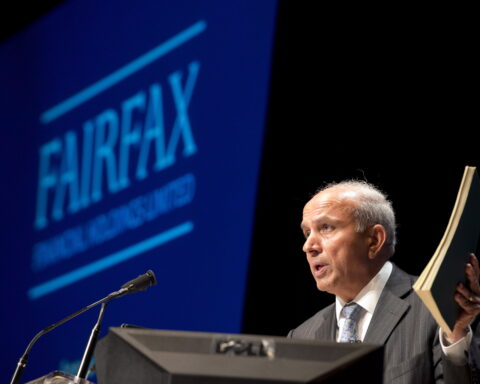In 2022, the Canadian Competition Bureau launched an investigation into whether the Royal Bank of Canada’s advertisements amounted to greenwashing. Now it might be the Ontario Securities Commission’s turn to look into the bank’s green claims.
Investors for Paris Compliance (I4PC), a shareholder advocacy organization, has called on the provincial regulator, and its Quebec counterpart, Autorité des marchés financiers, to investigate whether Canada’s “Big Five” banks – RBC, TD, CIBC, Scotiabank and BMO – have misled investors as to the seriousness of their response to climate risk. I4PC submitted a complaint to both regulators earlier this week, asking them to look into whether the banks’ sustainable finance disclosures were adequate and accurate.
They also urged the regulators to require the Big Five to disclose the emissions impact of their sustainable finance departments – to show that they were in fact different from their “regular” financing. “At best, sustainable finance as currently practised by Canada’s big banks is a $2-trillion placebo at a time when we need strong medicine to reduce emissions,” Matt Price, the executive director of I4PC, said in a statement. “At worst, it is greenwashing of carbon-intensive businesses, misleading investors and the public.”
In 2021, all five banks signed on to the Net-Zero Banking Alliance, which committed them to reach net-zero in their financed emissions by 2050. And each bank has acknowledged that the climate crisis could pose significant risks to their businesses. But none have fully disclosed the emissions impact of their sustainable finance divisions to the public or shareholders. And that’s a problem, Price says.
“We allege that by presenting sustainable finance as part of their climate responses, and attaching huge dollar figures to this, that banks are misleading their investors as to the seriousness of their response to a business risk that they themselves have called material,” Price said in an email. “There’s no evidence that sustainable finance is actually moving the needle, since the banks don’t disclose any emissions measurements associated with it.”
The I4PC complaint cited deals within the banks’ sustainable finance divisions that it says expanded fossil fuel production. One of these deals saw Scotiabank act as joint bookrunners (or secondary underwriters) on an $800-million “sustainability bond” of a utility company called Georgia Power, which then filed with Georgia state regulators to expand its use of fossil fuels. Another deal involved RBC and National Bank acting as joint bookrunners and structuring advisers for a $200-million sustainability-linked bond issuance, a portion of which went to buying another oil and gas company – which I4PC says raised emissions and moved the banks further away from their stated net-zero goals. (That was followed by another $100-million sustainability-linked issuance that helped acquire another fossil fuel company.)
In response to the complaint, the Canadian Bankers Association (CBA), which represents the five banks, said that Canadian banks understand the financial sector’s role in the energy transition and that sustainable finance is “one tool” to help companies “mobilize capital toward this effort.”
“Canadian banks follow prevailing North American market standards on environmental, social and governance disclosure, comply with applicable disclosure rules and regulations, and continue to work with industry forums and relevant governing bodies to advance standards that govern sustainability reporting and disclosure practices,” CBA spokesperson Maggie Cheung said in an emailed statement.
Price says the problem with banks following the “prevailing North American market standards” is that those very standards are not good enough. Even the emissions-increasing deals cited in the complaint comply with those standards, which Price says are too vague. The complaint called on regulators to establish clearer standards for sustainable finance. And there is hope that the guidelines will get better, as Price says regulators are trending in this direction, having identified greenwashing as a securities problem and issued reminders that the disclosure of ESG issues is subject to the same rules as all disclosure.
In response to a request for comment, the Ontario Securities Commission spokesperson said they were “unable to confirm or comment on the existence, status or nature of any complaint, review or investigation.”







